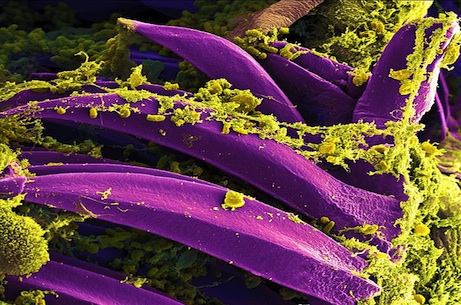
Towfique Raj is lead author on a paper investigating the evolution of inflammatory diseases such as multiple sclerosis.
Some variants in our genes that contribute to a person’s risk for inflammatory diseases such as multiple sclerosis, Crohn’s disease or rheumatoid arthritis, have been the target of natural selection over the course of human history, according to a study led by Gates Cambridge Alumnus Towfique Raj [2005].
He was part of a research team from Brigham and Women’s Hospital, led by Philip De Jager, MD, PhD, BWH Department of Neurology and Barbara Stranger, PhD, University of Chicago. The research, which has been published this week in the online issue of The American Journal of Human Genetics, looked at genome-wide association studies along with protein-protein interaction networks, as well as other data and found 21 places in the genome that bear a ‘signature’ for both inflammatory disease susceptibility and natural selection.
Towfique Raj from BWH’s Department of Neurology and Harvard Medical School, is the lead author on this study. The findings suggest that, in the past, these variants rose in frequency in the human population to help protect humans against viruses, bacteria and other pathogens. But now in our cleaner modern world, the environment and exposure to pathogens has changed, and the genetic variants that were originally meant to protect us, now make an autoimmune reaction more likely. These results are consistent with the hygiene hypothesis in which our cleaner environment is thought to contribute to the increasing prevalence of inflammatory diseases.
Towfique, who did a PhD in Genetics at the University of Cambridge, said: “Interestingly, the selection events we look at are recent (within the last 2,000 years or so) and it seems that one interconnected pathway implicated in multiple inflammatory disease has been under selection. Given the fact that we have recorded human history for this period, we have also been able to make a speculative comment regarding bubonic plague as one possible pathogen that could have played a role since all of this work focused on European populations, in which the disease-associated variants have been discovered.”
This research was supported by the National Institutes of Health. To access the paper, click here.
Picture of Yersinia pestis which causes bubonic plague: NIAID-flickr and Creative Commons.












